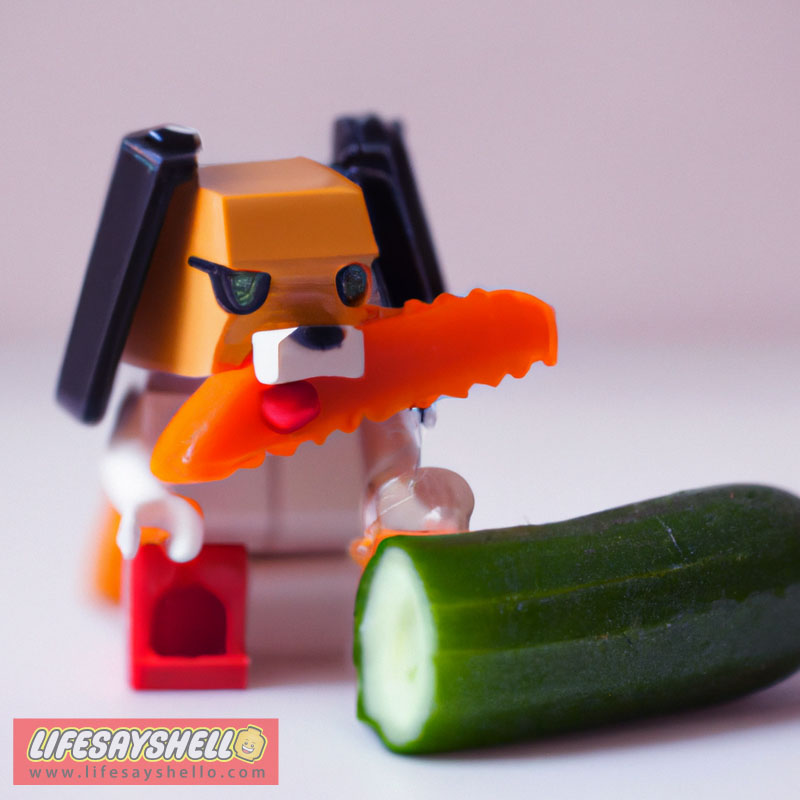Take a Bite Out of Veggies: The Ultimate Guide on What Vegetables are Good for Dogs

Kick starting this is a simple question: Have you ever wondered if it's cool to serve your furry friend a portion of your dinner? Well, you're not the only one. Food lovers are everywhere, and that includes our canine companions. This article is like your trusty veggie-crunching compass, directing you effortlessly through the leafy wilderness of vegetable treats that are perfect for pups.
Let's start by laying it out there. Dogs are a lot like us - they appreciate a nice, juicy variety in their meals. But, before you start tossing pieces of your salad into Fido's bowl, it's important to know which veggies are up for grabs and which should go in the, "Nah, not chill for dogs" category.
Why Vegetables? Seriously, though.
Vegetables are jam-packed with minerals, vitamins, and fiber. And in case you didn't get the memo, these are essential for a dog's wellbeing, just like they are for ours. Besides, in the fight against obesity in dogs, vegetables are like the ultimate weapon.
They are low in fat and sugars but high in the right kind of nutrients. They even serve up some sweet benefits like improving digestion, promoting a healthy coat, boosting energy levels, the list goes on.
Although, if your fuzzy buddy has an intolerance or allergies, it's a good idea to have a chat with your vet first. Your vet is the super-cool sidekick who can help figure out if any type of veggies could cause tummy upsets or allergic reactions. Onwards, folks!
The Cool Veggies Crew
Carrots: There's nothing like the satisfying crunch of a fresh carrot. Dogs dig that. Carrots also come with a bunch of vitamin A, which can help pump up their immune system and eye health. Raw or cooked, carrots make a brilliant low-calorie snack. Just don’t forget to chop them into manageable pieces to prevent choking.
Green Beans: Popeye might have been onto something with his love for greens (except he was into spinach, but you get the idea). Green beans are a solid choice for dogs. They are low in calories and pack a flavor punch. Plus, they contain lots of fiber, full of vitamins K and C. They can be served raw, steamed, or canned. Just remember – no added salt or spices!
Peas: Say hello to your canine's new best mate: peas. These tiny green fellows are a powerhouse of vitamin K, C and loads of minerals. Perfect for serving up mashed or whole, but make sure they are de-podded first.
Cucumber: When the heat is on, cucumber is a refreshing snack for dogs. They're like a walking salad bar - low in calories, fats, oils, and all that. They're also quite hydrating, making them excellent for overweight dogs.
Broccoli: Easy there, broccoli comes with a head start (pun intended). They're rich in vitamins and fiber but don't overdo it, though. Broccoli can cause tummy upsets if dogs eat too much. Consider this veggie an occasional treat and be sure to cook it thoroughly without adding seasonings.
Spinach: Here's another green leafy vegetable that your dog might fancy. It's high in iron and vitamin K. However, similar to broccoli, spinach also contains oxalates, which can upset your dog's digestive system if consumed in large amounts. So, a little bit of spinach goes a long way.
Mind the Veggie Traps
Remember that too much of anything can lodge you right smack in the middle of Soup-Ville (read: trouble). Some dogs might face digestive issues with too many veggies crashing their gut party. Transition them slowly into any new veggie diet.
Listen to their bodies, observe their poo (yep, you read it right), and if something is off, drop the new food and see a vet. And again, seasoning is not for dogs. You might enjoy your veggies slathered in garlic, onions, or salt, but that's a disaster for your dog's wellbeing. So, plain and simple is the way to go.
Before you dub yourself the Veggie Master, loop in your vet. They can help you dish out the perfect serving size, pick out the best veggies, keep allergies at bay and avoid any hiccups along the way. As hard as it is to resist those pleading puppy-dog eyes, remember that your pet's health is not a place to wing it.

More Than Just Salad
When we think of veggies, salads are usually what comes to mind. But imagine this - veggies as training treats. Sounds far-out, right? Hear us out. Carrots and cucumbers sliced into little pieces make excellent low-calorie training treats. You don’t want to pile up the pounds while teaching Fido to sit or fetch.
But, remember to not replace meals with veggies. Reinforce that veggies are part of a balanced diet not just for us but also for our furry friends.
DIY Vs Pre-packaged
Now, if you are short on time or simply not ready to whip out the chopping board, you can find pre-packaged veggies in the pet food aisle. Pet food manufacturers have clocked onto the veggie vibes and offer a range of vegetable-based treats and foods. But remember to read the label. These often contain extra ingredients that might not be the best for your pet. Plus, store-bought usually lacks the fun element of slicing, dicing and bonding with your dog.
How to Introduce Veggies?
Introducing veggies does not have to be a daunting task. Start small, introduce one vegetable at a time. This way, if your dog has any adverse reaction, you'll know what caused it. Also, every dog is unique. Some may enjoy the crunch of raw carrots where others may prefer them steamed. Don't fret if they don't like one vegetable -- there's plenty more to choose from!
Experiment with Cooking
You might find that your pup will eat almost any vegetable if it's prepared properly. Try steaming or grilling some zucchini, sweet potatoes or bell pepper (minus the seeds) and see if your furry buddy takes to it. You can also get creative and mix vegetables with their usual food. A bit of mashed peas and carrots might just be the variety they’ve been looking for!
Avoid the Toxic Twelve
While we're chatting about what veggies they can eat, it's a good time to call out the ones they definitely cannot. The "Toxic Twelve" as we like to call them, includes garlic, onions, mushrooms, tomatoes, asparagus, white potatoes, chives, leeks, rhubarbs, peppers, and avocado.
These can cause everything from tummy upsets, anemia to serious digestion issues. When in doubt, Google it out or better yet, consult with your vet.
A Word With the Vet
Since we're doling out all this advice, it’s important to loop-in a professional. Be it a new diet or new food, we can't stress enough on how helpful a vet consultation can be. They can factor in your pet’s breed, weight, and health condition to give an informed decision.
Ready, Set, Cook!
So there you have it. The A-Z on everything vegetable in the canine world. Now all that's left is to whip that kitchen into cooking mode.
Remember, the aim here is not only feeding your furry friend but also providing variety and fun in their diet. Lifelong health and happiness of our pets are shaped by many factors, and what they eat is a significant part of that.
So don't be afraid to explore, experiment, and most importantly, enjoy the time preparing your pet's meals. Consider it a love language between you and your dog.
Ever seen a dog munching on a cucumber or heard the crunch of a happy dog chomping on a carrot? It's pure joy worth all the effort.
So, now that you're all stocked up on info on what veggies are good for dogs, it’s time to make magic happen in that kitchen. Always remember, a little can go a long way and too much can be a hassle. With this knowledge, we are pretty sure your pet's next meal is heading for the 'delicious and nutritious' category in no time!
Happy cooking, and may the veggies be with you!




Comments